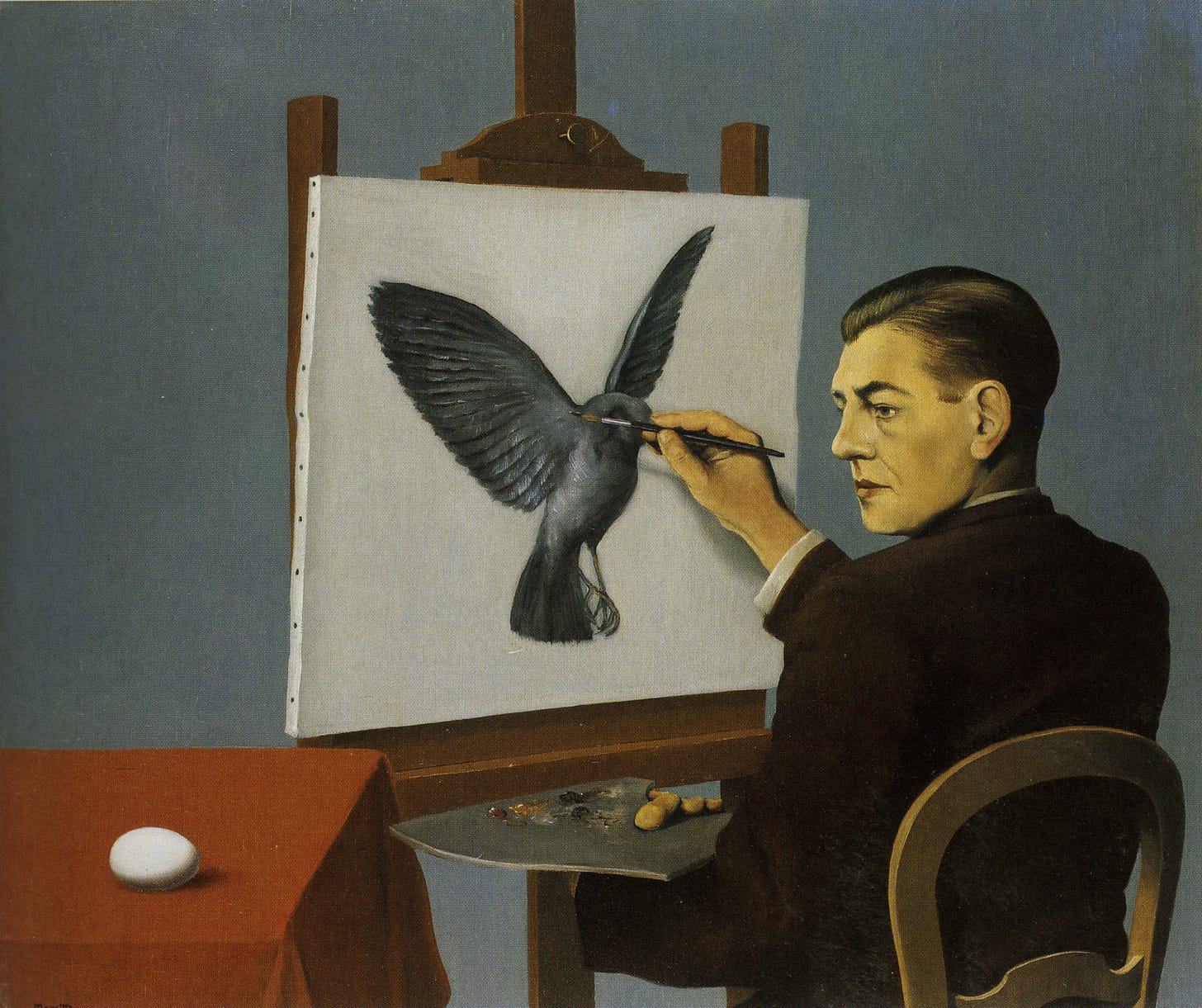The Clairvoyance of TikTok
When Big Brother has the power to tell us things about ourselves that we hadn’t noticed
Last week, the founder of Fastlane and a software researcher, Felix Krause, published a report that showed that when you open a link within TikTok’s in-app browser, it activates a sequence of code that allows the app to monitor taps and keystrokes on the page. The implications of this type of surveillance are difficult to overstate—as Forbes suggested, the code would “alert TikTok to what people are doing on those websites,” meaning TikTok would collect any usernames, passwords, and account numbers entered while using the browser. TikTok quickly responded to the discovery, saying that it “strongly pushed back on the idea that it’s tracking its users in its in-app browser,” but this isn’t the first major security concern about TikTok as a surveillance apparatus or its relationship to Beijing and to what extent those issues pose a threat to national security.
Despite what has now become a regular occurrence of revelations about lapses in platform security, it doesn’t seem to make a huge dent in the number of Americans who continue to use these apps. Among millennial and Zoomer power users, there might be recognition that TikTok is spying on them, but the overwhelming attitude is that they’ve been spied on our whole lives. Why draw the line at TikTok, when Meta and Alphabet could probably re-create our consciousness at this point? To some, there’s a darkly beautiful, even spiritual, element to the TikTok panopticon. Maybe there’s a way to harness it.
For the true TikTok enthusiasts, it’s not just that they’re powerless in the face of Big Brother—it’s that Big Brother can become something transcendent. I can’t think of a better expression of this than a weird folk belief that’s developed around TikTok’s algorithm: It’s so personalized that some people believe it can be used as a tool for clairvoyance. Sometimes, this manifests in noticing signs and omens within the app: e.g., you see four videos about breast cancer, you book a mammogram. But creators also became wise to this tendency and used it to their advantage. Spend any amount of time on TikTok, and eventually you’ll see a video of a psychic, astrologer, or tarot card reader on your For You page (the main feed when you open the app, separate from the people you’re following), claiming to have special insight into your life.
“This video has no hashtags,” many of them will proclaim. This video found you because it was meant to find you. The psychic or tarot card reader will go on to share something about your future—usually that your divine masculine/feminine or twin flame is “coming back,” whatever that means. Enough people have become wise to this engagement hack that it’s spawned an ancillary genre of videos of real psychics discrediting the “clickbait” videos, but it’s significant that they ever became a trend at all. (They’re also not the only type of video that brings an expression of “techno-spirituality” to TikTok.) There’s some recognition, even subconsciously, that we’re not fully separate from TikTok. It’s like an astral plane that we can carry around with us in our pockets. Or maybe, put another way, it’s a part of us. There ceases to be a clear boundary between us and the machine: TikTok is just another expression of our consciousness, just one we can swipe up and down on. Big Brother has the power to tell us things about ourselves that we hadn’t noticed.
My friend and tutor, the McLuhan scholar Clinton Ignatov, recently remarked to me that one of the ways to fight back against this melding of person and computer is to make using the computer a deliberate event. His strategy is to do all his work on an offline desktop computer. If he needs to look something up, he uses a CD-ROM of Microsoft Encarta, a discontinued multimedia encyclopedia, or physical books. He imposes limits on himself. His description of his relationship with the computer reminded me of something a spiritual mentor once told me when I was a teenage occultist: Never try to learn something from the astral realm that you can learn in the material world. And if you have to astral-travel, be sure to ground yourself—never let yourself be fully enveloped by another realm. You can get lost out there.
It’s valuable advice: Whether in a fantasy world or on the internet, people have a tendency to lose themselves. My own experience with computers was markedly different when there was a barrier to entry to everything. I had to go to “the computer room.” I had to ask everyone in my family if they needed to make any calls. Once I was online, even surfing the web was deliberate. Things took a while to load; nothing was fed to me. Nothing could be taken for granted. All this to say, the curtain opened and the curtain closed, even if cyberspace seemed like a limitless frontier. I couldn’t be there forever; the physical world was still competing. I might still have been susceptible to the same kind of addiction I am today, but even that I had to face. It was easier to recognize myself as unhealthily attached. Today the computer is just another part of me.
These days, it’s persistent. It’s a veil over everything we do. I never log on because I never log off. The panopticon—or Big Brother—or Beijing—in this world to some becomes not a threat, but an omniscient god.





Excellent piece on how social media has made the online and physical worlds increasingly difficult to separate. I like how you described the online landscape as "an astral plane" that claims "to have special insight into your life," because that couldn't have been an apt metaphor. I notice that a lot of people often use the Internet in deciding certain things about themselves, like whether or not they're "queer" because they find an anime femboy hot, or whether they should self-diagnose themselves with BPD because they change their interests every few months. It's all based in cerebral abstractions rather than concrete interactions and things that can be observed in material reality.
Also, this is probably a sign I need to work a lot of my own online usage hahaha.
Home run! 👏😎👍